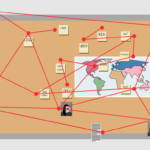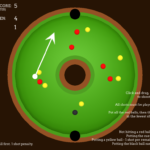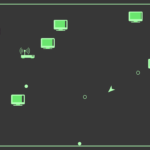Making microtransactions not evil
Since EA announced that all their games are going to have “in-app purchases” from now on, there’s been a fair bit of debate across the internets about microtransactions in general. So I thought I may as well weigh in with a few disconnected ramblings of my own.
A few days ago, Mike Rose made a blog post on Gamasutra, entitled “What we really need is a free-to-play game jam“. Mike’s main point is that we indies and gamejammers should be playing around with different ways to make microtransactions not-evil. This piqued my interest, because I’m a game-jam kind of person, and if there actually were a Free-To-Play Game Jam I’d probably take part.
So, how do we go about making microtransactions not evil?
Well, first off, if we’re not being evil, we can’t put features into the game, onto people’s computers, then lock them down so that only paying people can use them. The spirit of Richard Stallman may not have made much headway into the world of gaming yet, but even cheat-wielding gamers generally like their computers to be under *their* control rather than some company’s control. And once playing around with memory-hacks becomes – potentially – financial theft, something’s gone very badly wrong somewhere. So let’s not do that.
Next off, we can’t require a permanent internet connection for single-player gaming, that’s just silly. There are a lot of people in the world who don’t have anything you could reasonably describe as a “permanent internet connection”. And we’d best not stop making single player, because I *like* single player.
So that narrows things down a bit. Next off, nothing that enforces a big multiplayer gameplay rich/poor divide. Call me a Socialist, but we have enough social inequality in the real world already without spreading it out into other worlds. Oh, and don’t force non-paying people to expend vast amounts of time grinding instead, because then you have a financial motivation for making your game not-fun.
And one of the big problems with microtransactions at the moment is that the “micro” seems specifically designed to deceive people about how much they’re actually spending. A hundred lots of pretty-much-nothing is still pretty much nothing, right? Wrong, it’s now “actually quite a lot”. So none of that.
We now have our constraints. So how do we, within those constraints, charge people recurring amounts of money?
Well, for single player, if we’re not requiring a permanent internet connection and not putting locked closed code onto people’s machines, then all we can do is charge people for one-time downloads of extra content. This would traditionally be called “DLC”, or sometimes “buying a game”. This seems a bit unadventurous, but logically it seems the only not-evil option.
Now for multiplayer. Here we don’t have the same control-over-their-machines problems that we do with offline singleplayer, because you’re exerting control over your servers rather than their machines. Trouble is, if we’re not allowing gameplay advantages, then that just leaves cosmetic changes, which seem a bit pointless.
One thing I’ve heard proposed somewhere, though, is a free-to-play competitive multiplayer game, that allows anyone to play unranked, but requires payment for ranked games. This could be seen as “just another cosmetic change”, but it’s the sort of cosmetic change that people care about. So this one could work nicely, without being evil.
Or alternatively, we can go one stage further out, and do what I was going to do for the last October Challenge – have the microtransactions pay directly for the game development itself. As in, once X amount of money is in the pot, we’ll release feature Y for everyone for free. This could work nicely within an open-source ecosystem, while still getting money to the developers. I’ve no idea whether it’d work in practice, though – but that’s a question for another blog post, this one’s too long already.






Leave a Reply